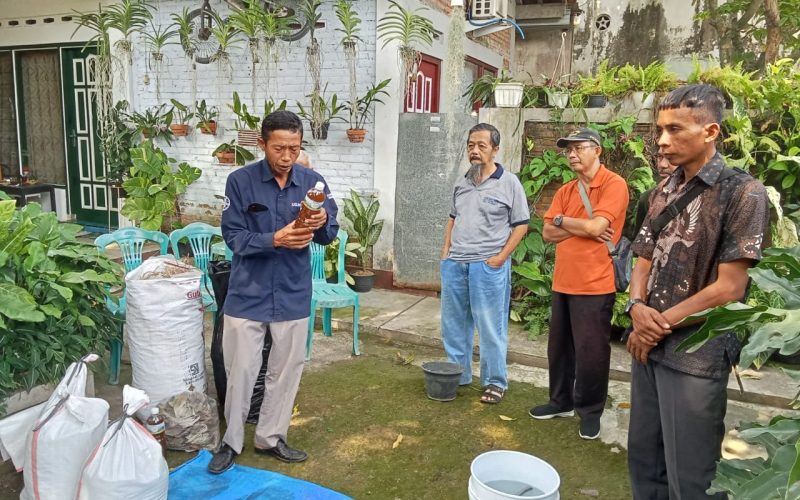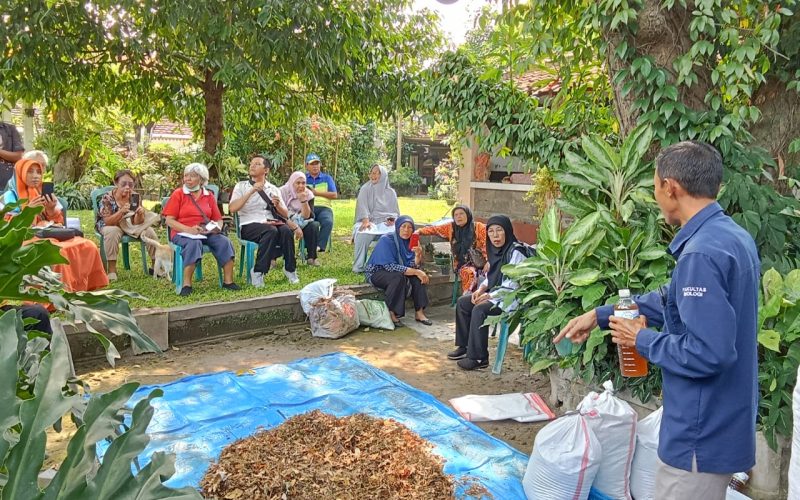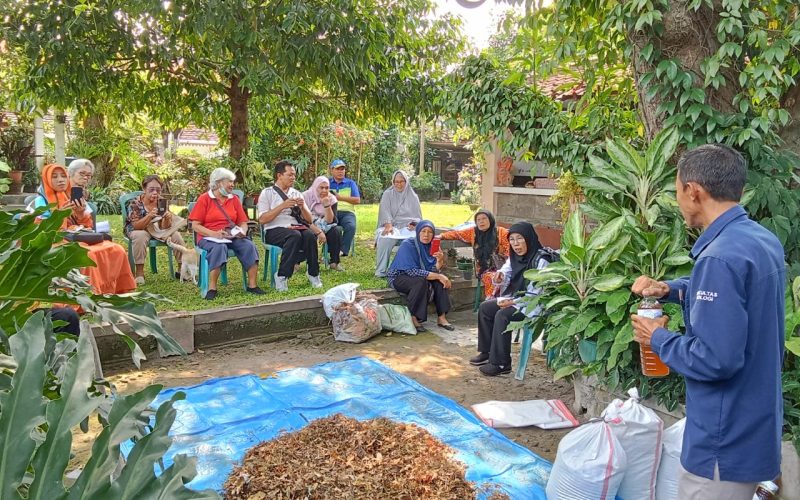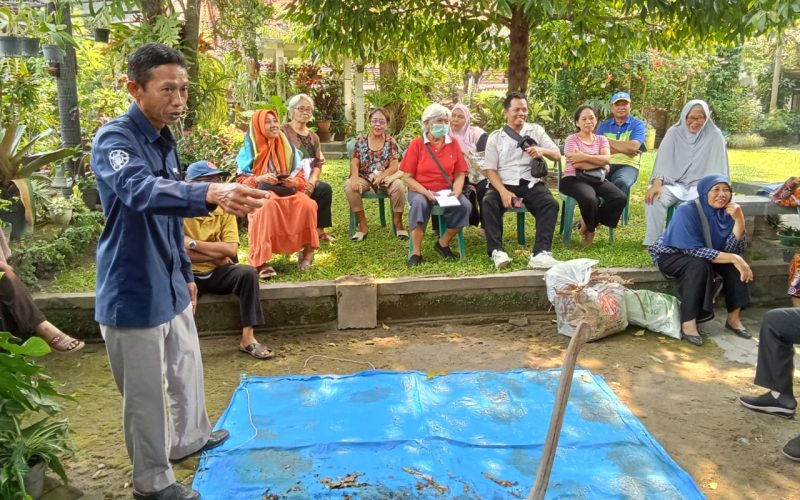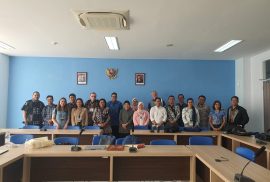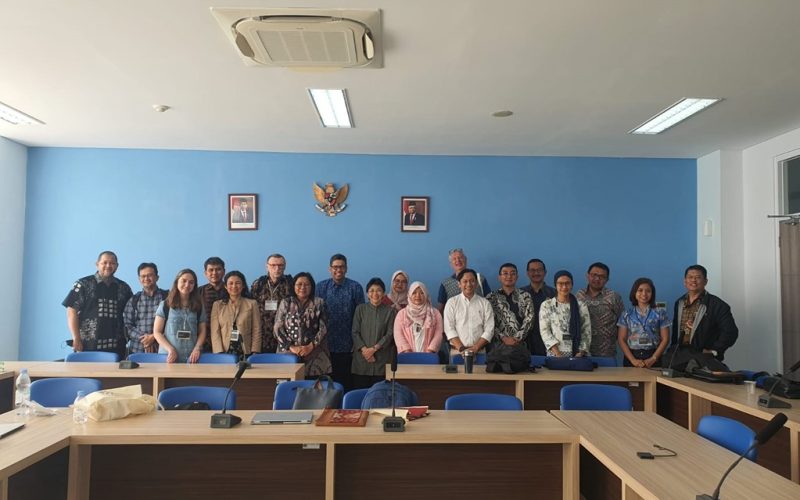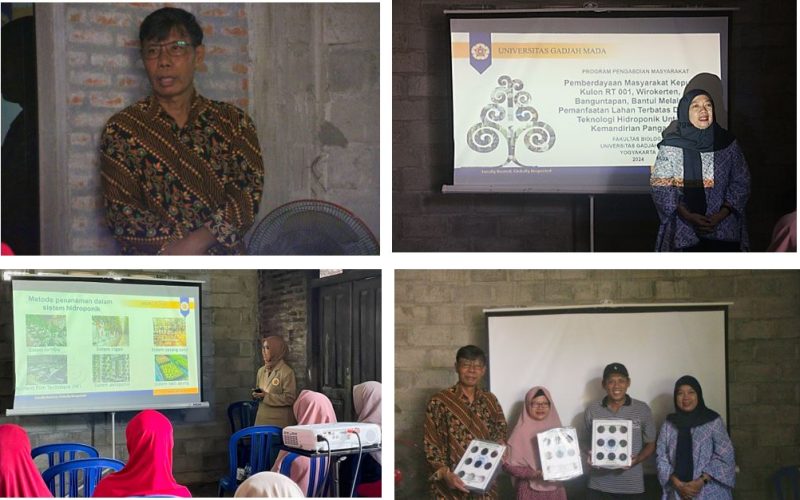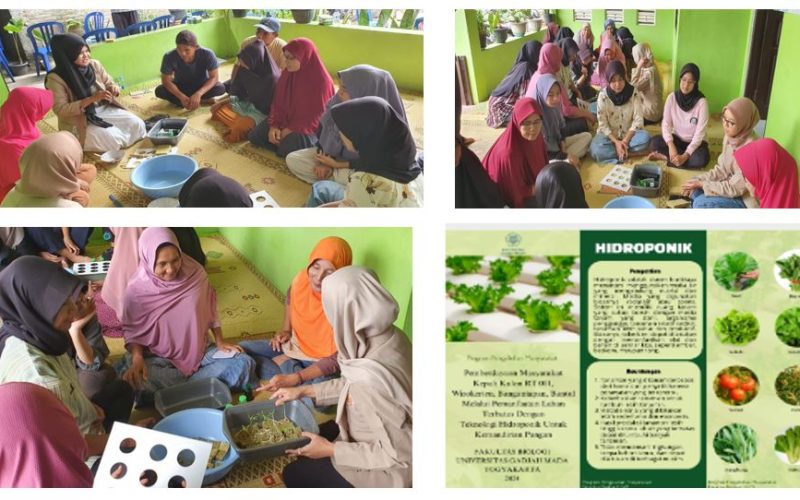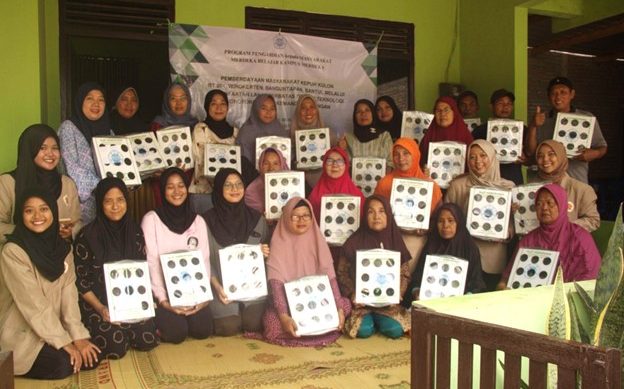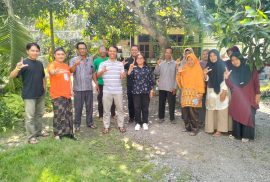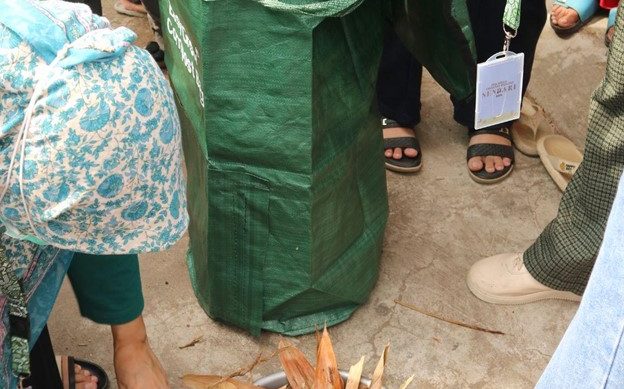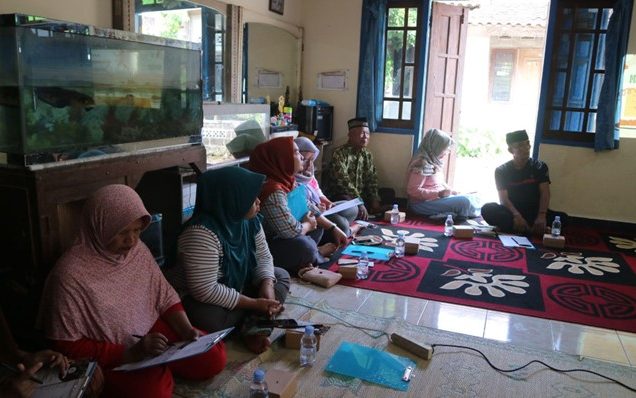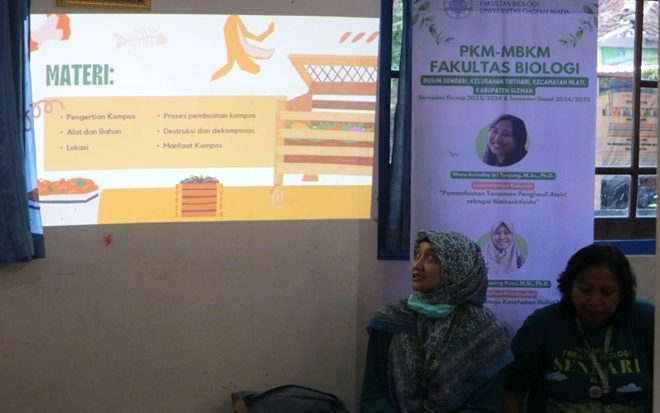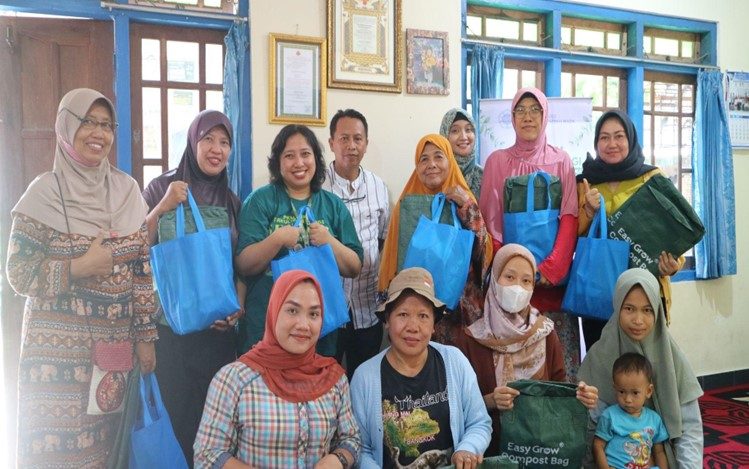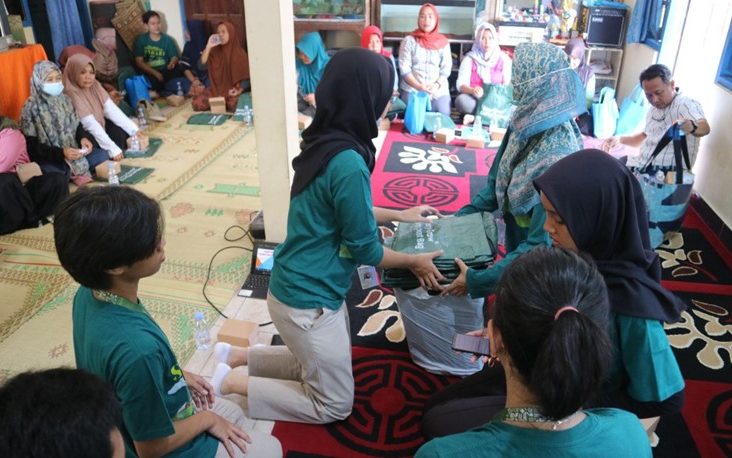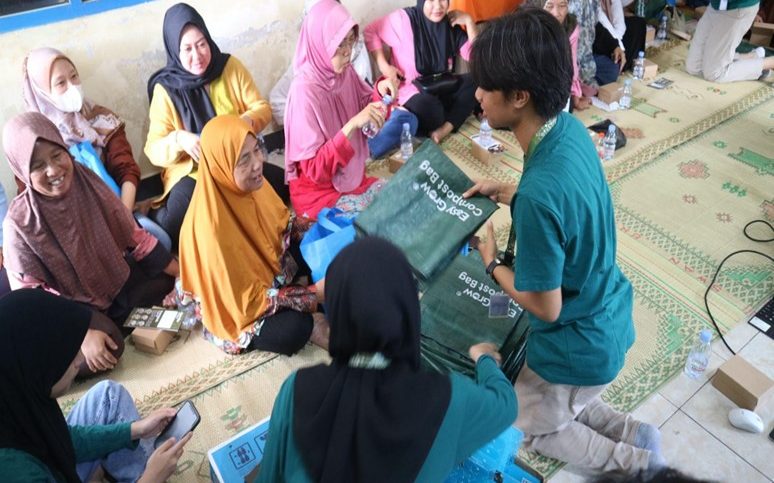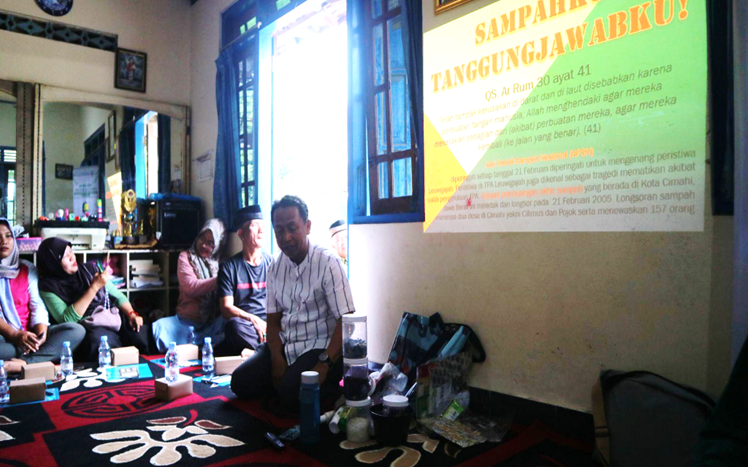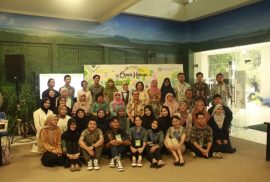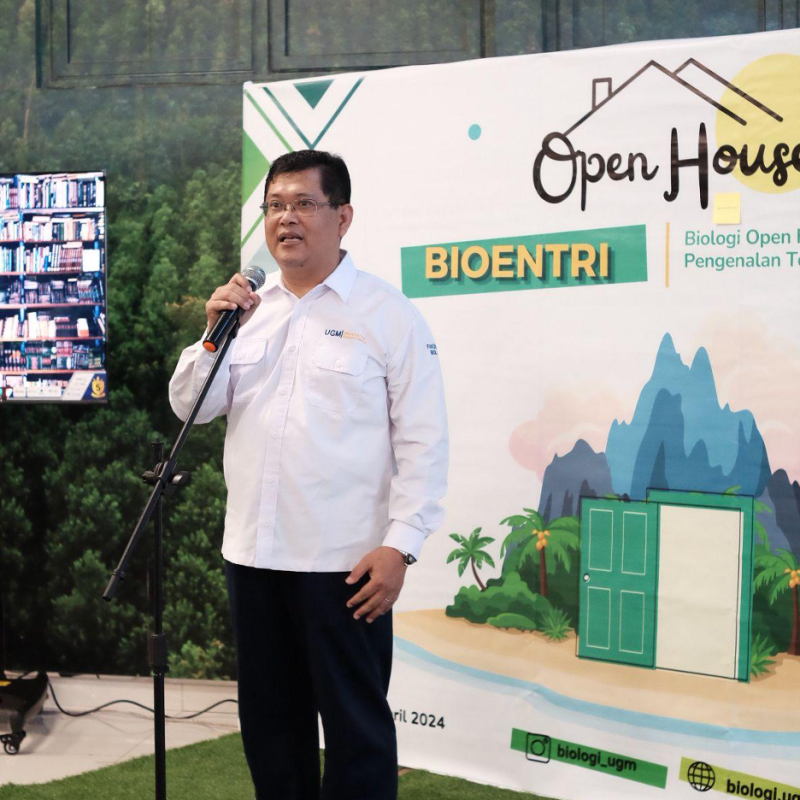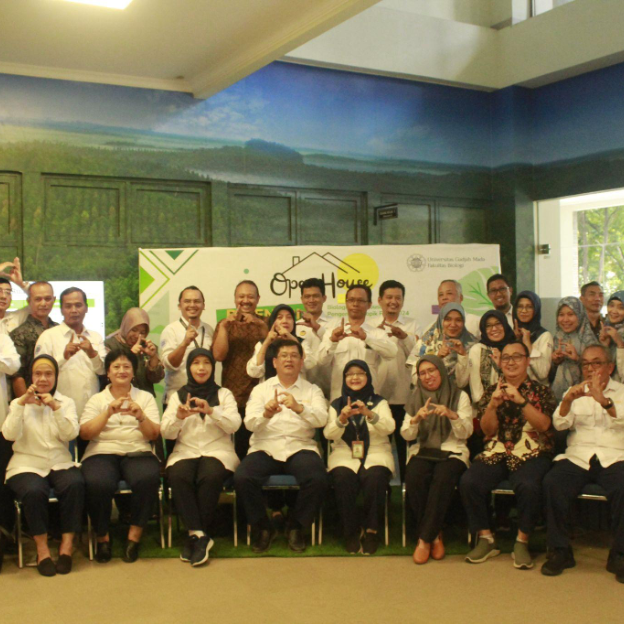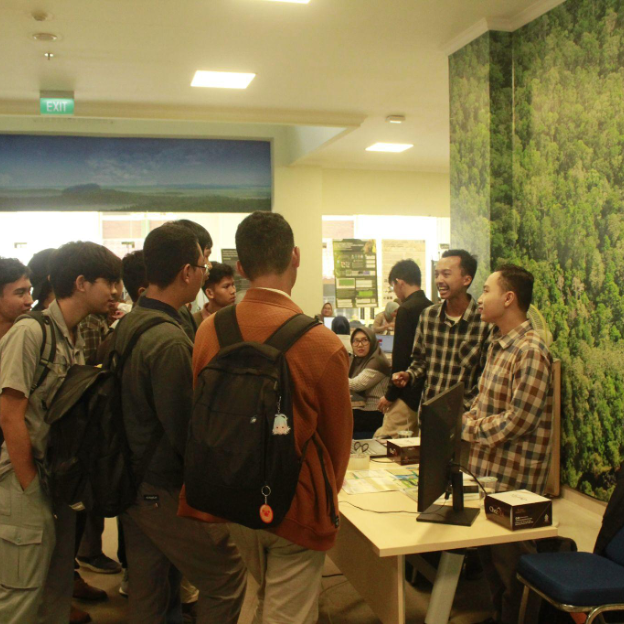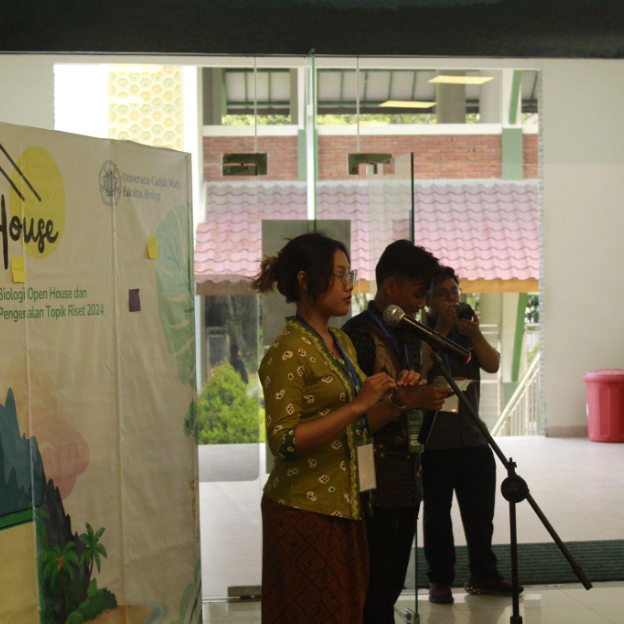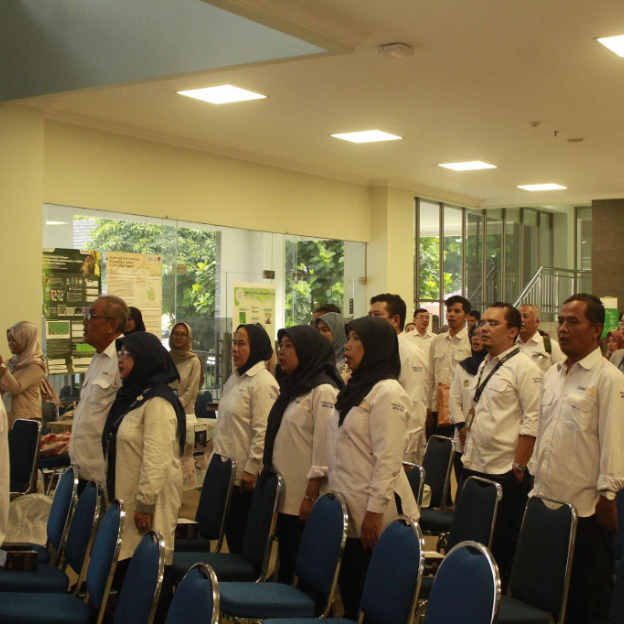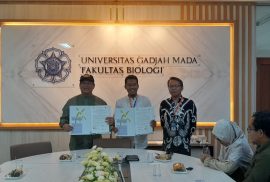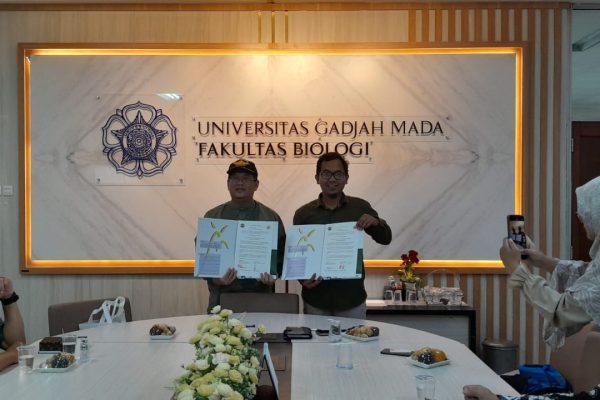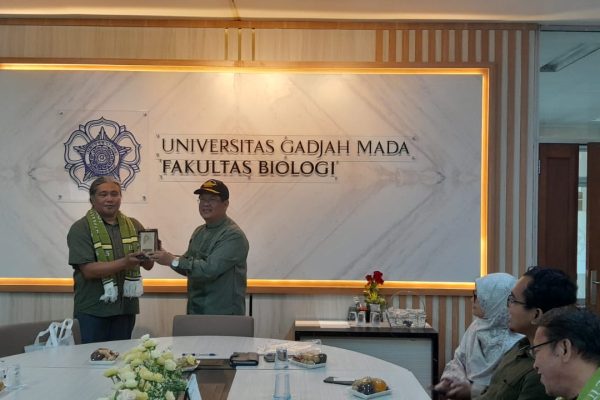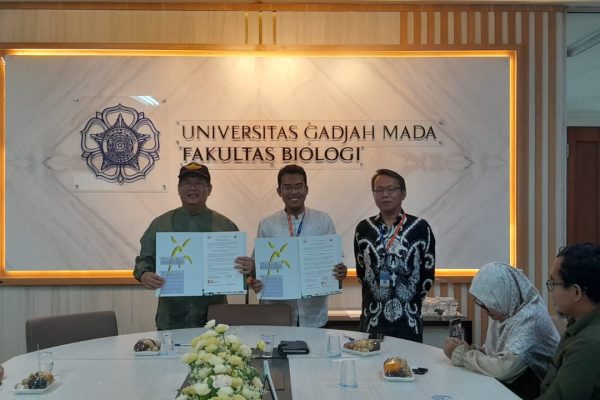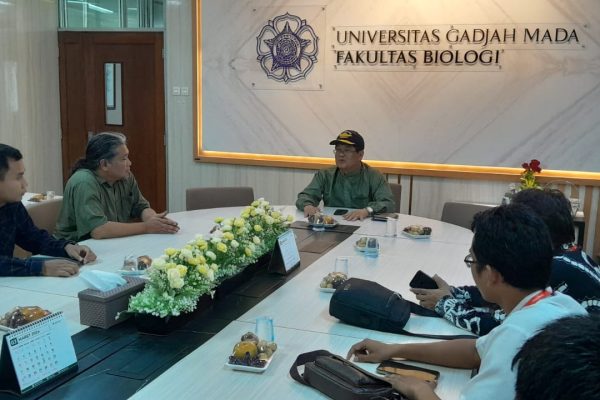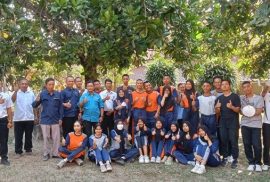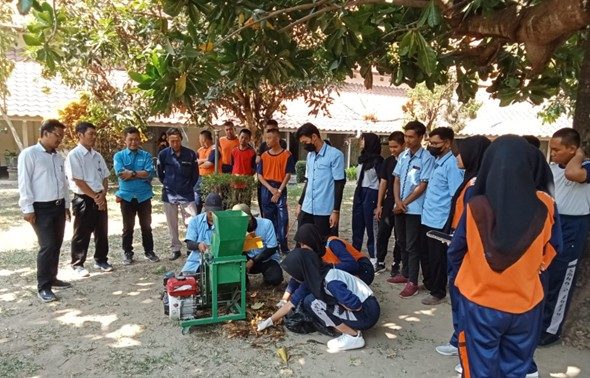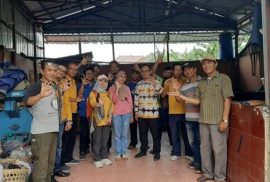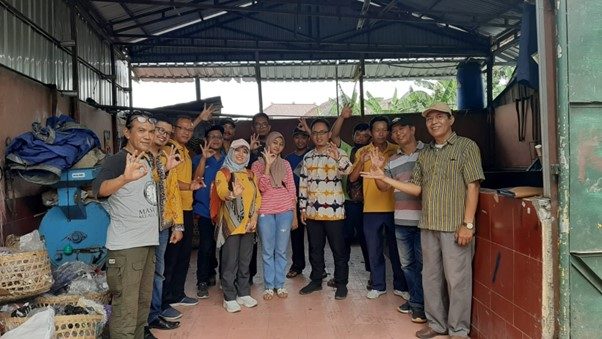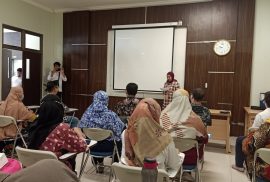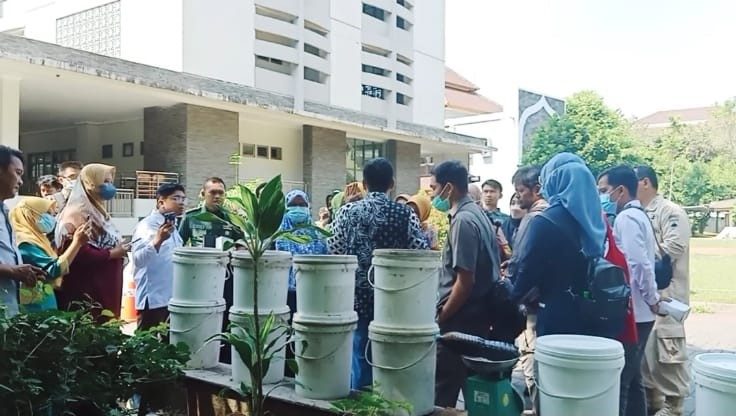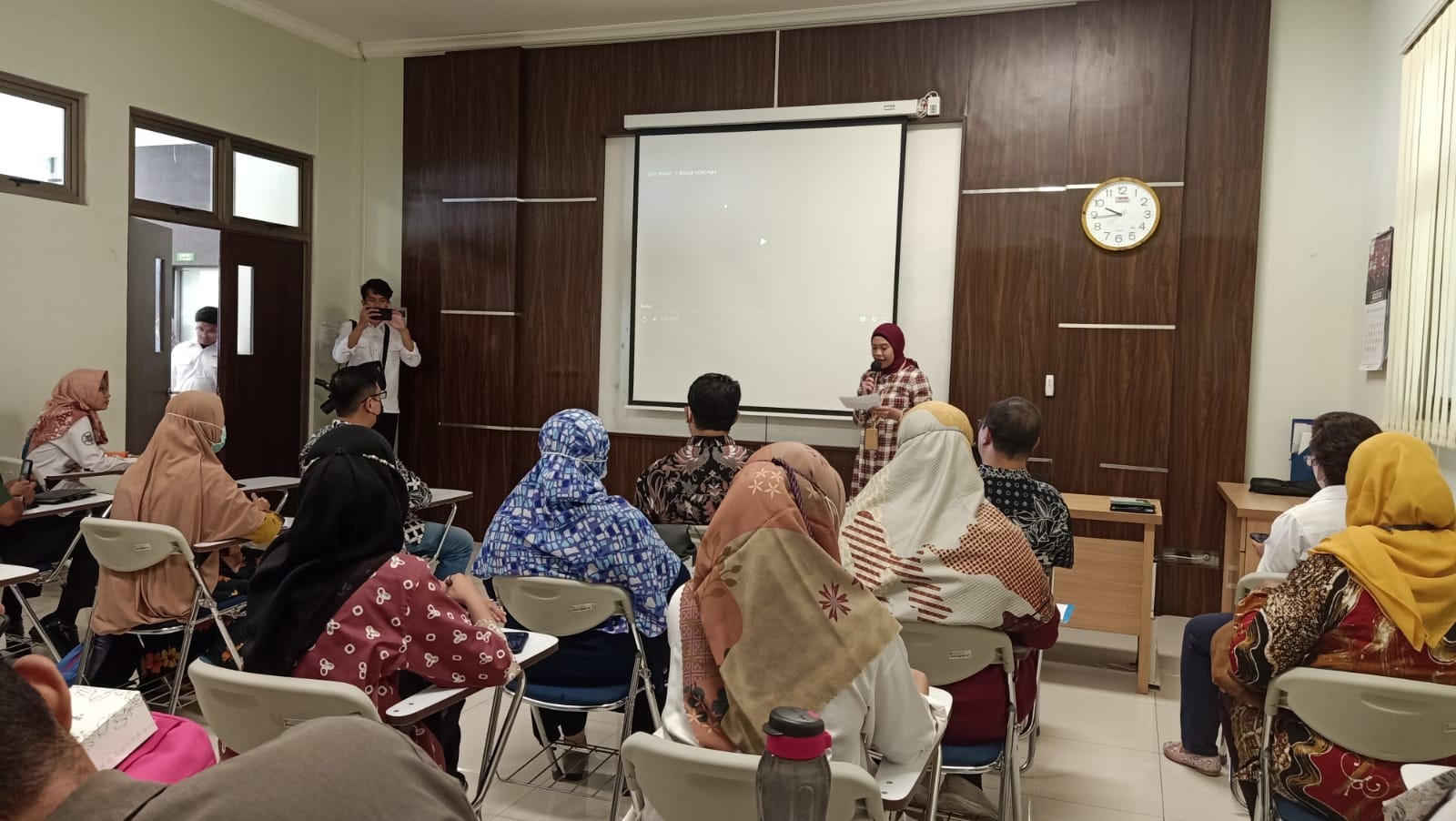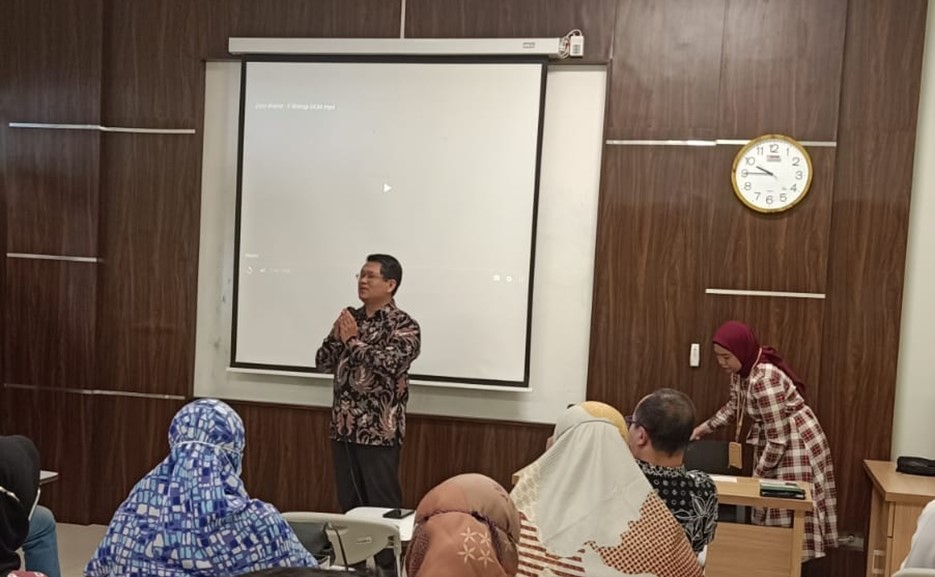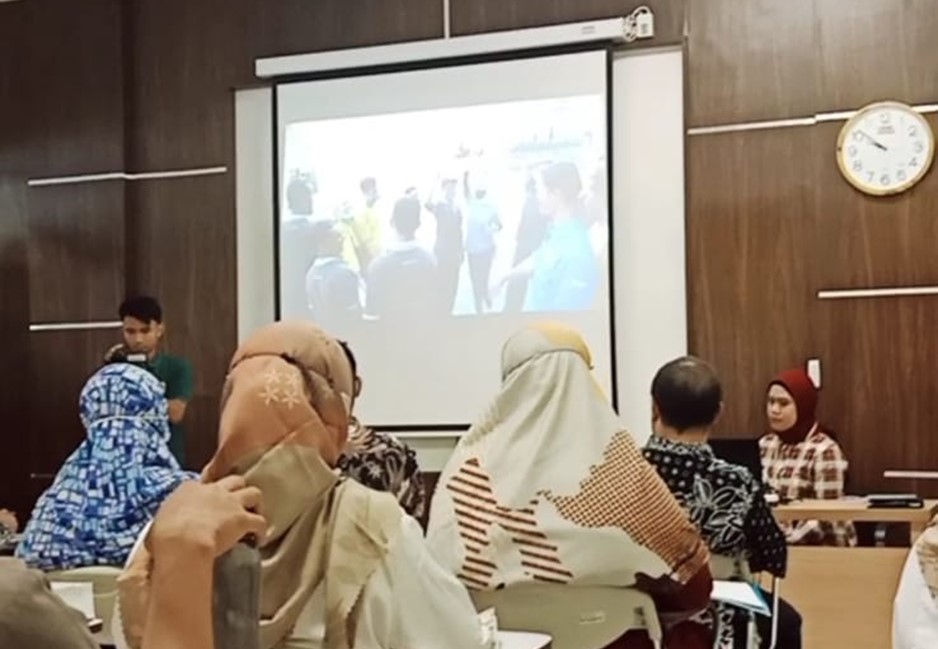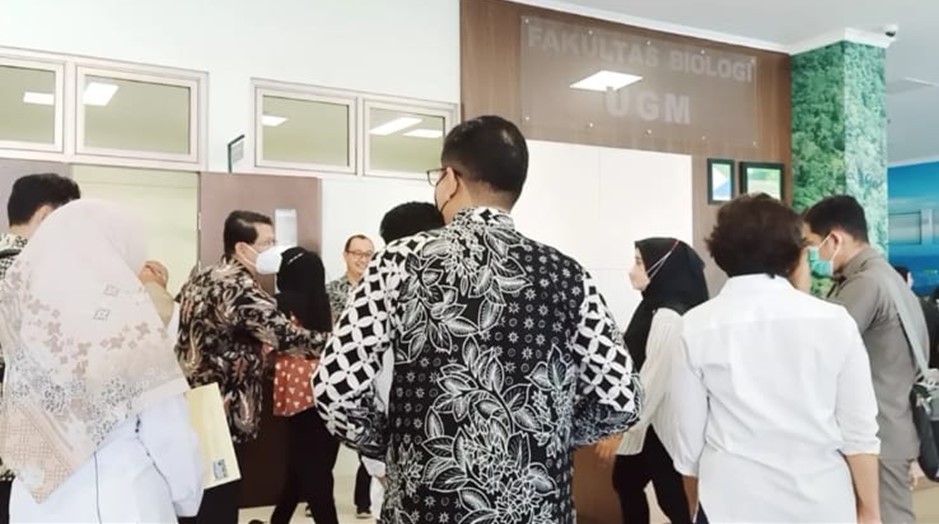SDG 11 : Mobilize Sustainable Cities and Communities
The Community Service Team – Independent Learning Independent Campus (PkM-MBKM) of the Faculty of Biology UGM for the year 2024, chaired by Rina Sri Kasiamdari, Ph.D., has successfully conducted a series of Community Service activities at Kepuh Kulon RT 001, Wirokerten, Banguntapan, Bantul. The MBKM PKM program supports SDG 1 No Poverty, SDG 2 No Hunger, SDG 8 Decent Work and Economic Growth, SDG 11 Sustainable Cities and Communities, and SDG 12 Responsible Consumption and Production. The team, consisting of four students, namely Nurindah Musarofah, Hasna Nabila Kusumastuti, Cindy Adisty Rudi Ananda Putri, and Amalia Rizky Fauzi, focused on the theme of simple hydroponic cultivation technology to enhance community food independence. This program is designed to span two semesters. On the even semester, PkM-MBKM activities were conducted on Sunday, May 5, 2024, from 09:00 to 12:00 WIB at the residence of Mr. Zamzuri, the Head of RT 001 Kepuh Kulon. The activities included socialization and practical demonstrations of simple hydroponic cultivation utilizing a wick system. The event was warmly received by 22 residents of RT 001 Kepuh Kulon, as well as Mr. Sunartana, the Head of the Kepuh Kulon Hamlet. In his address, Mr. Sunartana expressed his hope that this program would evolve into a sustainable initiative to address local challenges, urging community members to support its continuity. Mrs. Rina emphasized that the program aims to bolster community food independence by maximizing limited land resources through hydroponic cultivation and encouraged residents to adopt hydroponic practices at their homes.
Socialization activities included providing information on the concept and benefits of hydroponics, suitable plant species for hydroponic cultivation, various hydroponic techniques, types of fertilizers and equipment, and procedures for implementing wick system hydroponics. The wick system was chosen for its simplicity, minimal requirement of tools and materials, and low maintenance costs. During the practical session, residents were divided into four groups of 6-8 individuals, each accompanied by a student mentor to facilitate independent practice. Participants engaged in activities such as seed selection, planting in rockwool, preparation of nutrient solutions, and transplanting seedlings. It is hoped that the residents’ enthusiasm and newly acquired skills will contribute to the sustainability of the program. Additionally, the PkM-MBKM team distributed sets of hydroponic tools to enable residents to continue practicing hydroponic cultivation at home. The PkM-MBKM program will be continued in the odd semester Academic Year 2024/2025 in September with activities to process hydroponic harvests into products that can be used for community food independence.
#SDG 1 No Poverty, #SDG 2 No Hunger, #SDG 8 Decent Work and Economic Growth, #SDG 11 Sustainable Cities and Communities, #SDG 12 Responsible Consumption and Production
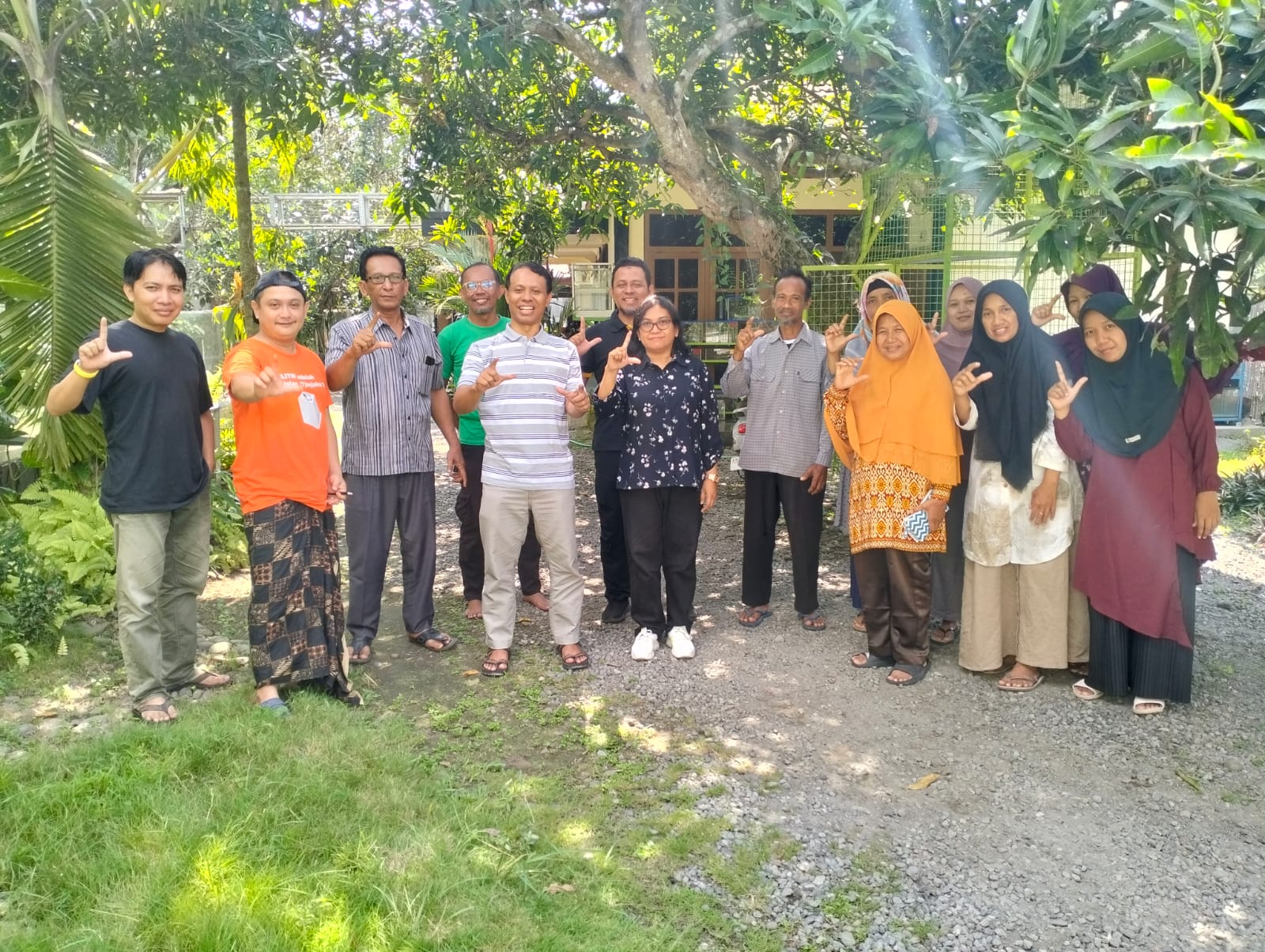
This activity is a form of community empowerment aimed at increasing interest in educational-themed tourism by improving infrastructure, facilities, and creating a more attractive and informative environment. With better environmental arrangements, visitors are expected to enjoy an educational, comfortable, and memorable tourism experience.
This program targets KWT women to address waste issues from tourism activities, including organic and inorganic waste. Through this activity, Kampung Satwa residents will learn effective and environmentally friendly waste management methods, helping maintain the cleanliness and sustainability of Kampung Satwa. Additionally, this program aims to educate visitors about environmental cleanliness, health, and personal hygiene.
This step ensures that animal data is up-to-date, well-organized, easily accessible, and sustainable. Structured and digital information will facilitate the management of animal collections and education for visitors and researchers. Besides being conducted by the IT and Creative Team of the Wagleri Foundation, this program involves children in Kampung Satwa in animal documentation.
The promotion and marketing of Kampung Satwa as a leading regional tourist destination will be conducted physically and digitally (audio-visual). This activity aims to attract a broader range of tourists, including students, researchers, and families, to promote environmental education from an early age.
This program targets KWT women skilled in cooking and crafting various handmade items. This activity has the potential to enhance Kampung Satwa’s reputation as a tourist destination while improving the welfare and economy of residents.
On Monday 7 August 2023, a group of waste management tour participants coordinated by SONJO, a humanitarian movement focused on aiding communities visited The Faculty Of Biology UGM. The group, consisting of 25 participants, arrived at the Faculty of Biology UGM around 9:30 AM and was promptly received by the Dean and the faculty members. This visit to the Faculty of Biology at UGM was part of a series of visits that had previously taken place at the Faculty of Dentistry at UGM.
During his welcoming speech, the Dean of the Faculty of Biology UGM, Prof. Dr. Budi S. Daryono, M.Agr.Sc., expressed gratitude for the participants’ visit. “The issue of waste actually originates from humans themselves, so it’s up to humans to solve it,” Prof. Budi stated. Furthermore, Prof. Budi elaborated that the Faculty of Biology UGM engages in daily waste management across a substantial area, including organic waste from the Biology Forest. Over time, the Faculty of Biology has made discoveries in waste management, such as expediting compost production.Following this, a video demonstrating the waste management procedures carried out at the Faculty of Biology at UGM was played.
At the conclusion of the event, participants were taken to the field to witness the waste management processes firsthand, which included:
- Composting and maggot cultivation
- Production of POC/Biofertilizer and ECO enzymes
- Vermicomposting process
The waste management tour participants are scheduled to continue their visit for a period of 3 days until Wednesday (8/9/23), with participants from hospitals and religious boarding schools.

